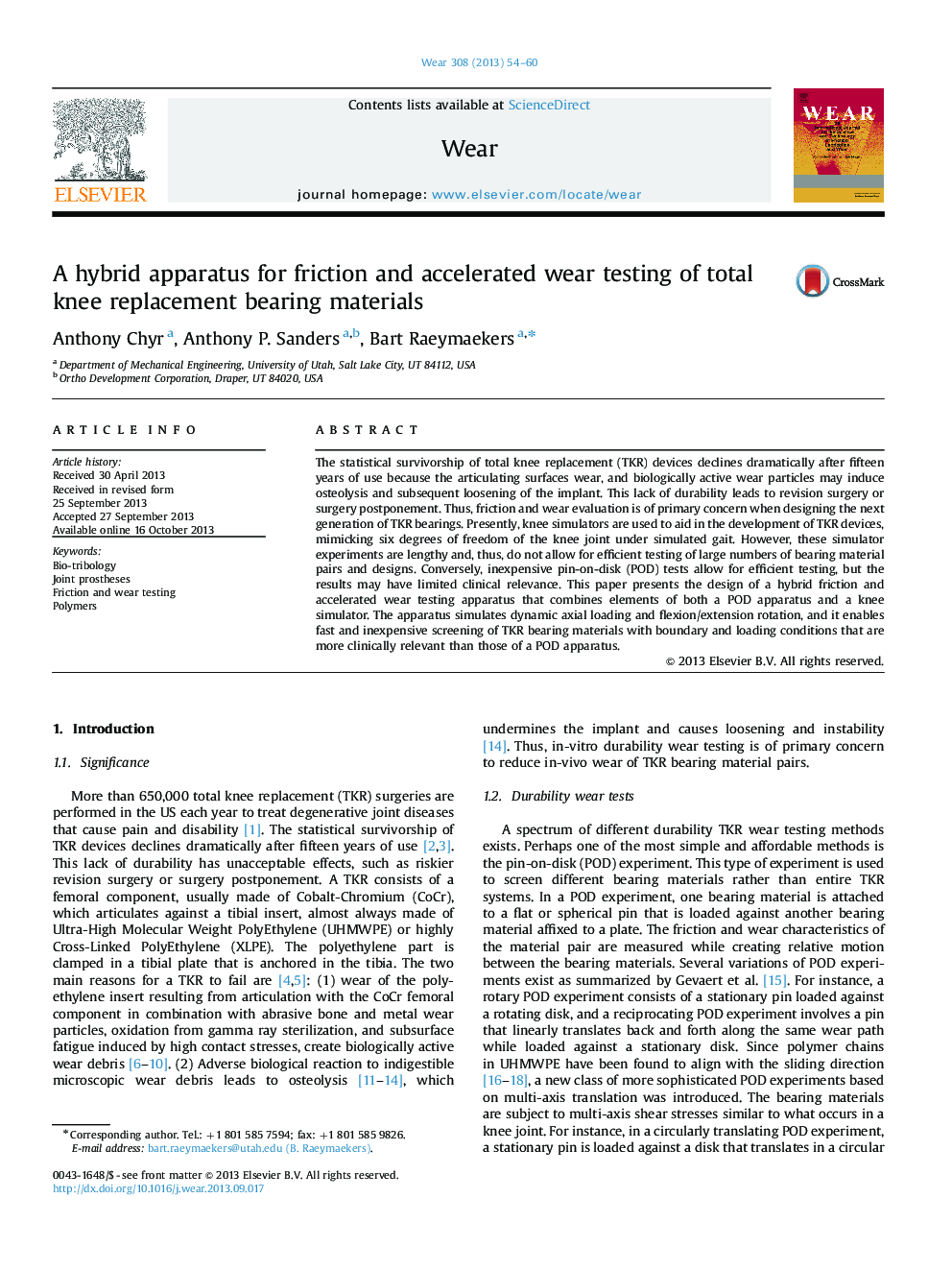| Article ID | Journal | Published Year | Pages | File Type |
|---|---|---|---|---|
| 617429 | Wear | 2013 | 7 Pages |
•A hybrid friction and wear apparatus for total knee replacements is discussed.•The apparatus includes flexion/extension rotation and axial loading.•Provides means for performing durability testing in a clinically relevant context.
The statistical survivorship of total knee replacement (TKR) devices declines dramatically after fifteen years of use because the articulating surfaces wear, and biologically active wear particles may induce osteolysis and subsequent loosening of the implant. This lack of durability leads to revision surgery or surgery postponement. Thus, friction and wear evaluation is of primary concern when designing the next generation of TKR bearings. Presently, knee simulators are used to aid in the development of TKR devices, mimicking six degrees of freedom of the knee joint under simulated gait. However, these simulator experiments are lengthy and, thus, do not allow for efficient testing of large numbers of bearing material pairs and designs. Conversely, inexpensive pin-on-disk (POD) tests allow for efficient testing, but the results may have limited clinical relevance. This paper presents the design of a hybrid friction and accelerated wear testing apparatus that combines elements of both a POD apparatus and a knee simulator. The apparatus simulates dynamic axial loading and flexion/extension rotation, and it enables fast and inexpensive screening of TKR bearing materials with boundary and loading conditions that are more clinically relevant than those of a POD apparatus.
